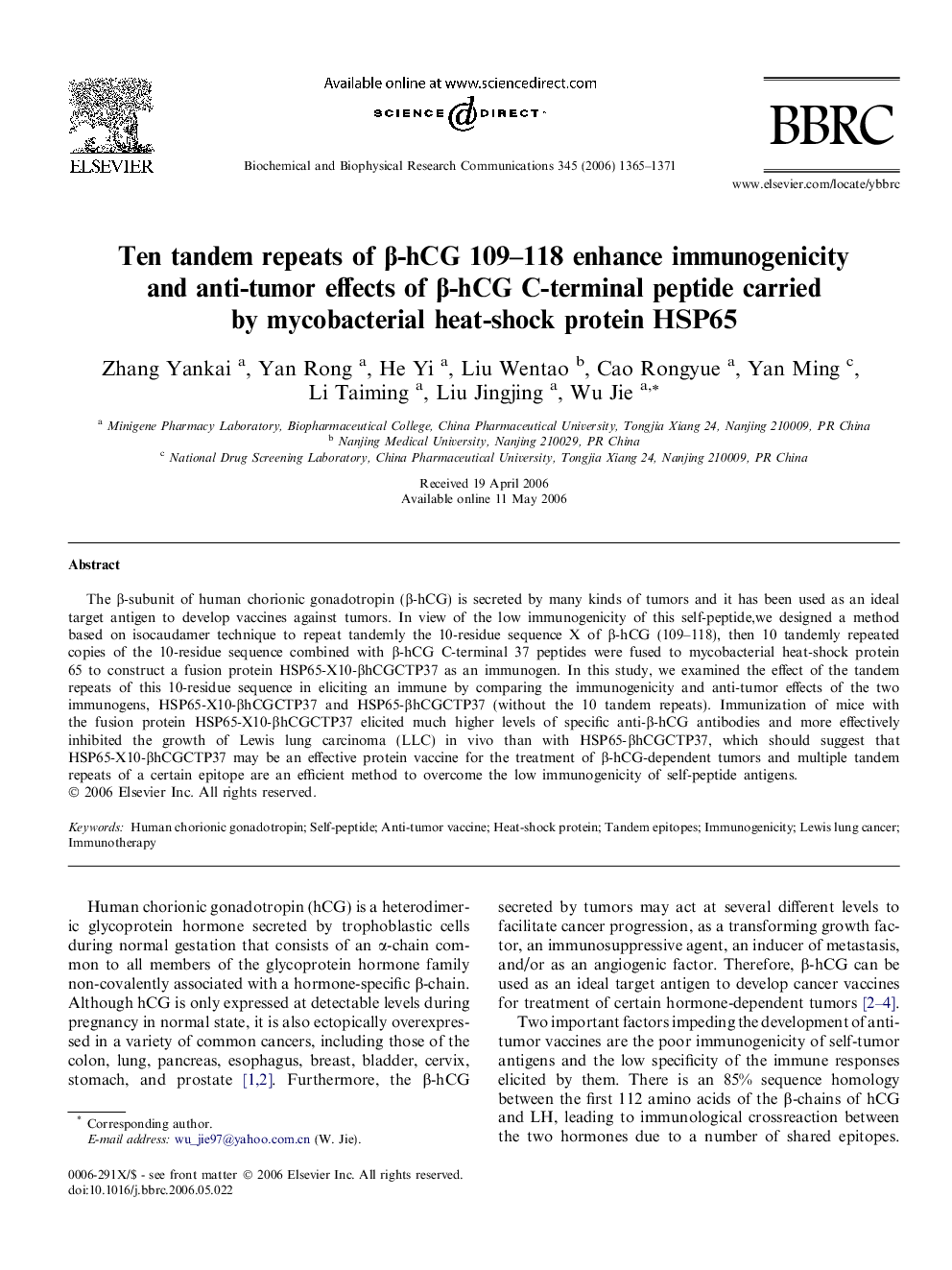| Article ID | Journal | Published Year | Pages | File Type |
|---|---|---|---|---|
| 1939774 | Biochemical and Biophysical Research Communications | 2006 | 7 Pages |
Abstract
The β-subunit of human chorionic gonadotropin (β-hCG) is secreted by many kinds of tumors and it has been used as an ideal target antigen to develop vaccines against tumors. In view of the low immunogenicity of this self-peptide,we designed a method based on isocaudamer technique to repeat tandemly the 10-residue sequence X of β-hCG (109-118), then 10 tandemly repeated copies of the 10-residue sequence combined with β-hCG C-terminal 37 peptides were fused to mycobacterial heat-shock protein 65 to construct a fusion protein HSP65-X10-βhCGCTP37 as an immunogen. In this study, we examined the effect of the tandem repeats of this 10-residue sequence in eliciting an immune by comparing the immunogenicity and anti-tumor effects of the two immunogens, HSP65-X10-βhCGCTP37 and HSP65-βhCGCTP37 (without the 10 tandem repeats). Immunization of mice with the fusion protein HSP65-X10-βhCGCTP37 elicited much higher levels of specific anti-β-hCG antibodies and more effectively inhibited the growth of Lewis lung carcinoma (LLC) in vivo than with HSP65-βhCGCTP37, which should suggest that HSP65-X10-βhCGCTP37 may be an effective protein vaccine for the treatment of β-hCG-dependent tumors and multiple tandem repeats of a certain epitope are an efficient method to overcome the low immunogenicity of self-peptide antigens.
Keywords
Related Topics
Life Sciences
Biochemistry, Genetics and Molecular Biology
Biochemistry
Authors
Zhang Yankai, Yan Rong, He Yi, Liu Wentao, Cao Rongyue, Yan Ming, Li Taiming, Liu Jingjing, Wu Jie,
